Tips & Tricks For Role-Playing Game Storytelling
August 26, 2015 by brennon
I’ve done a lot of role-playing in my time as a tabletop gamer both as a player and a Dungeon Master, Game Master or Storyteller (dependant on what kind of system you’re playing!) In that time I’ve had my fair share of peaks and troughs when it comes to telling a story that the other players will love so I thought I’d share some of my experiences and tips for a great session.
Planning
There is a fine line to be trod when it comes to planning. On the one hand you have to make sure that you have an idea of where the storyline is going and what obstacles you should be putting in your Player Characters way (PC). You should also be aware that too much planning can lead to a couple of pitfalls.
One of these pitfalls falls on the lap of the GM/DM/Storyteller. You could sit there crafting a huge and incredibly in-depth world but your players are probably not going to see 80% of it. It’s great for creativity but you could be spending a lot of time crafting this world for no reason whatsoever.
The balancing act here would be to come up with a broad backstory for the world you’ve made and the key locations that are of interest, trying to anticipate what the players might ask. Then potentially invite the idea of cooperative storytelling with your friends. More on that later.
The second pitfall (or spike trap?) with too much planning is that you can end up rail-roading your players down a very specific path. This of course is something that can affect some groups more than others (some like a linear storyline) but if you are adamant that a story WILL end up at a certainly point you can potentially cripple the interactivity within the story for players.
Too little planning can end up with you having a very boring play session. Making things up on the fly is great but that’s something that takes a while to get used to. Not knowing how to react to your players and/or leaving them at dead ends in the story because you didn’t come up with anything can lead to things feeling very shallow.
I know the last point is one that seems very obvious but you’d be surprised at the amount of Game Masters I’ve had who had no idea what was going to happen past the first encounter they’d written.
"Roll For Initiative..."
Combat is a big part of many role-playing games even if you might not end up getting them involved in a scuffle more than once or twice a session. However, when you do engage your PCs in a life threatening situation you have to make it something they will remember.
There are once again a few approaches to this that I’ve come to learn more about. The first of these is when you give the heroes a power trip. Minions are a good example of this from Dungeons & Dragons 4th Edition and of course when you just pit them against fodder foes and have them die after one hit.
This can give the characters a sense of power and show them their potential. This is a way of doing combat that should be used sparingly however. Too much of this kind of combat and the characters won’t feel powerful, they will just get bored.
I find this kind of combat is good for use when doing instances where the storyline might be held up by the action or in mass battle situations where the very minute details of the overall scene might not really be that important.
The other end of the combat spectrum is not being afraid to give your PCs a challenge. Actually feeling like they might die in an encounter is key to character motivation, especially in a game setting like World of Darkness where combat is lethal - no magic potions here folks.
Of course many systems have guidelines as to appropriate challenges dependant on level but don’t be afraid to shake things up. Just don’t make it a silly challenge just to make yourself feel powerful as a Games Master.
Don’t be afraid to let players come up with alternative ways of solving combat encounters as well. Monsters aren’t stupid (well, most of them) so if they come up with a clever way of twisting situations in their favour let them do it.
Death By Dice
In the right group don’t be afraid to kill your PCs. If they do something stupid - kill them, within the rules of course. If you have given them sufficient in-game warning and they still do something silly then they deserve to take the consequences of their actions.
An example of this was in a game of Dragon Age I was GMing. The players were hunting down these bandits who were using blasting powder to destroy key parts of the cities infrastructure.
They came upon these bandits shovelling a vast quantity of this power into pouches and in a prolonged fight one of the characters threw a fire bomb at a keg the stuff. He knew what would happen and as it landed it engulfed the player in flames destroying everything around it.
Even after sufficient warning ‘in-game’ (I didn’t stop him from doing it etc) his character died, killing all of the other assailants AND another of the player characters too.
It was a shocking experience that the player STILL feels bad about to this day but if I’d held back I think I would have removed a sense of realism from the experience and the weight of choice.
Of course this isn’t going to be for every group. Just remember that when you’re battling monsters not everyone gets out alive.
Cooperative Storytelling & Player Agency
One of the most important lessons I’ve learned from being a Game Master is that you don’t have to have all of the answers. When crafting a world for a Fantasy adventure or playing out a mystery in our own world let the players influence some of the background.
A key example of this happened in a story where someone asked about a long forgotten war between Dwarves and another race. Well, one of the player characters in the game was a Dwarf so instead of me telling the story to them I just let him do it.
You might think that this defeats the object of me being there at that point but it gave the character a wonderful moment to build on his race’s history and colour it with his own opinions. Of course another character might have a different point of view on what happened. It certainly created some interesting scenarios later down the line.
There is a line here however as some players won’t feel comfortable doing this. If not, don’t worry about it, and keep the storytelling within your realm of responsibility. However, if you think that the players can handle it and not abuse your trust then it’s something to consider.
Another important part of this aspect of role-playing is to make sure they players have plenty of agency. This means that what they’re doing feels like it is having an impact. Don’t have your villain be beaten by the PCs only to then vanish in a puff of smoke - if they got him, they got him. Just because you had plans for him later on down the line doesn’t give him ‘plot armour’.
Give your players plenty of chances to influence the turn of events within your story focusing on them being at the centre of it all. Make sure the weight of their decisions also has an impact since in real life choices have consequences. The grey middle ground between good and evil is much more exciting than straight up ‘Lawful Stupid’.
Keep Everyone Involved (Party Size)
You should always be trying to make sure that the players all feel like they are involved in some way. Some characters might be particularly suited to certain situations, and of course let them shine, but always remember to reference the other characters too.
Even if it’s something as simple as ‘what do you think about this -insert name-?’. It can make a Barbarian feel involved in a noble’s house or a Mage feel important during a bar room scuffle.
Party size can also be a killer. While it might seem harsh a party as big as six might become unwieldy. I usually find that four or five players is a good number. Anything more than that and you have a lot of players feeling redundant.
There’s a reason the golden four is a Fighter, Cleric, Mage and Thief!
Appropriate Reward!
One of the ways in which I still to some degree slip up with GMing is when giving out rewards. I sometimes vastly overestimate the value of some rewards or end up giving the players too much for what they’ve done.
This then swings in two directions with the players feeling ripped off or having so much money to spend they don’t know what to do with it becoming bling monsters covered in flashy armour.
I suggest taking a good long hard look at what exactly the economy is within your game world before you think up rewards for players so you balance it accordingly.
Don’t forget that money isn’t always a good reward. Maybe the reward could be an advance in the plot from a key character or their own survival! Just getting through a day might be enough of a reward for some folks.
One of the all encompassing rewards though is experience which exists in nearly every system out there. Ration this out much like their monetary rewards being fair and adjusting what you may have planned dependant on what happened in a challenge.
An interesting way of doing experience that I’ve looked at over recent campaigns is to not award it as per normal, after each encounter (in the case of Fantasy games like Dungeons & Dragons), but instead at the end of key plot moments.
A player reaching level four in the middle of a story and suddenly getting better with his weapons is a very video game thing to do. Instead think about awarding experience and advancement at the end of narrative arcs giving the players downtime to improve.
This way the players still get better but not at awkward times and stops an age old problem of players getting different experience rewards and levelling out of sync with each other.
Be Prepared
Separate from planning make sure that you have everything ready for your session. If this is maps and miniatures then make sure it’s all ready to go. If it’s character bios and handouts, have them all typed/written out and ready to go.
I always have a pad of paper with me when I’m GMing which allows me to record all the initiatives and other passive skills player characters might have plus I can keep a record of anything potentially pivotal that happens in game.
This is always a lot easier than having to rely on a laptop or computer even if it does give you a little more clutter in the interim. All those notes you took should also go into one document at the end of a session so you have a narrative to refer back to as you go.
When it comes to maps and such I suggest using a whiteboard that you can sit on the table. Then, give a pen to each of the players so when you’re doing combat and the like they can move around where they ‘want’ with you watching of course, and takes some of the work out of your hands as a GM.
White boards are also great because you just wipe them down and draw a new location on them when you need to. They are particularly useful in mind’s eye style games where your players might need a helpful reference point. Still no need for miniatures either!
Have Fun
This is my no means an exhaustive list for helping our GMs starting out telling their stories but I hope it’s helped. With that in mind remember to bear in mind the main focus of why you’re doing this, to have fun.
You can have the most serious storyline but even in movies and TV shows where things are intense there are still moments of comic relief. If these happen in your story, where players start having a laugh and responding to something in a way you might not have thought, let them do with it. However there is a caveat…
If it keeps continuing like that then you have to be able to say to your players that it might be time to take a break and relax. Let the funny moments happen, they always will as you’re all sitting around a table pretending to be someone else, but know when to reel them in and get the story going again.
Don’t be afraid to call a break during big long sessions either to let people blow off some steam and talk about things out of character if they need to.
There have been many times, especially during World of Darkness sessions, where things have got a bit intense (because of the emotions running high within the story - no fists fights...yet!) and it’s probably a good time to take a break and order pizza.
Do you have any tips and tricks for being a GM/DM/Storyteller? Do you agree or disagree with any of my thoughts?
Get chatting in the comments below and let me know what you think!
"Don’t be afraid to let players come up with alternative ways of solving combat encounters as well..."
Supported by (Turn Off)
Supported by (Turn Off)
"When crafting a world for a Fantasy adventure or playing out a mystery in our own world let the players influence some of the background..."
Supported by (Turn Off)





























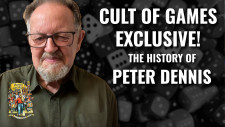

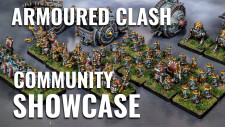
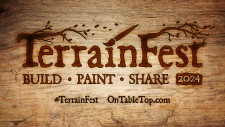
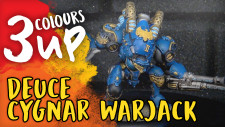
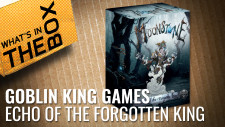






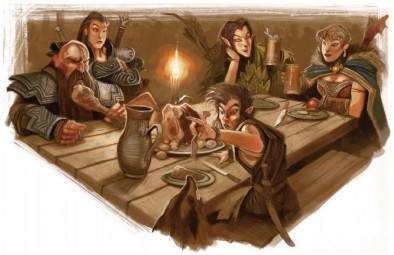
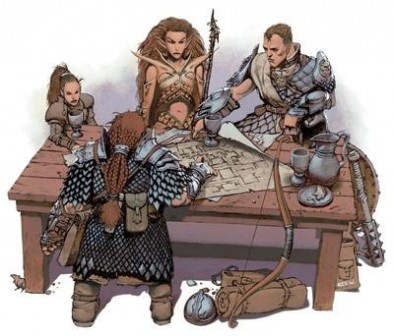
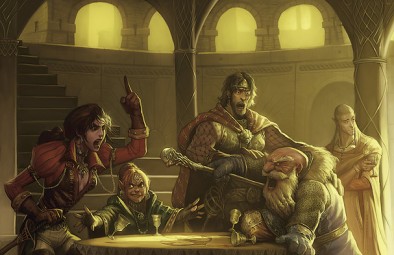
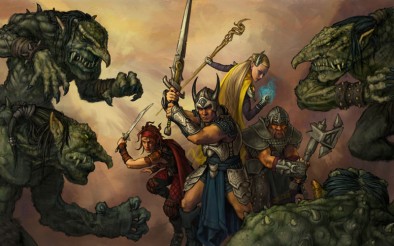
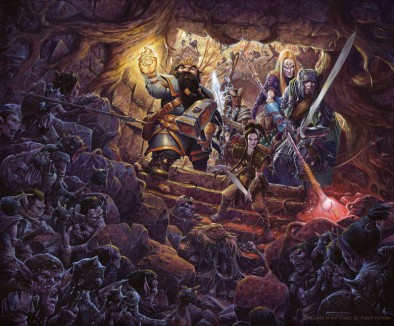
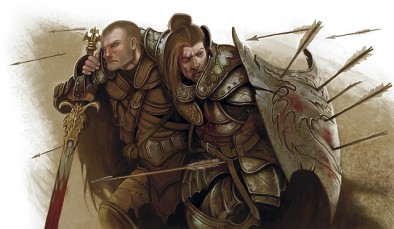
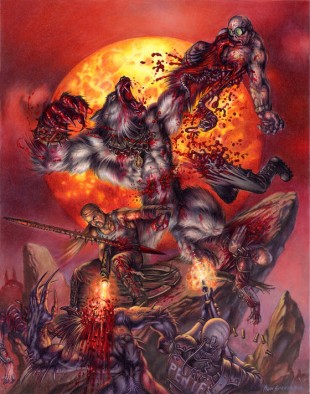
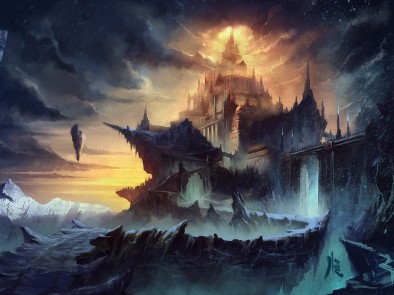

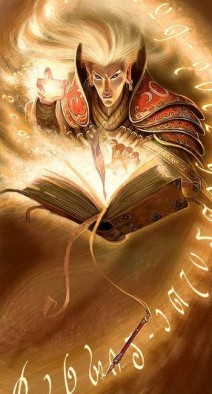
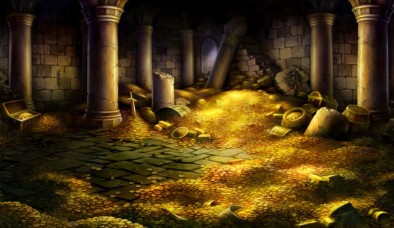
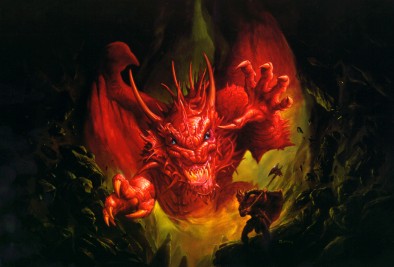
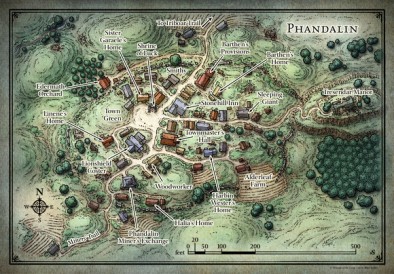
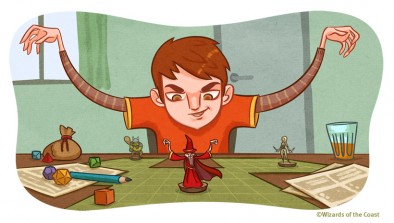

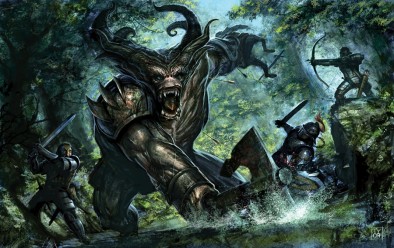


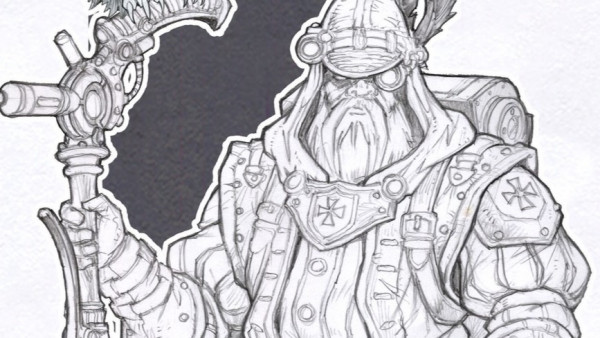
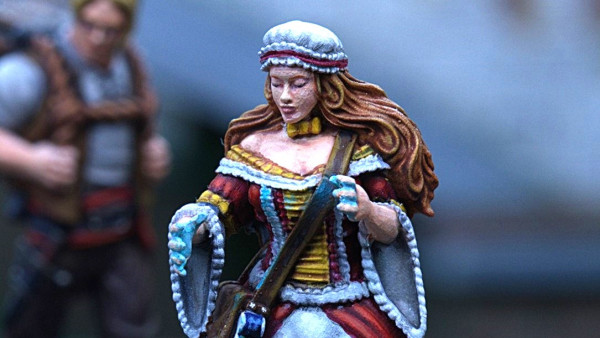
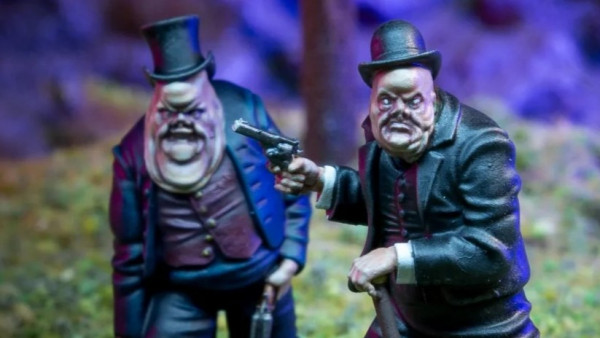
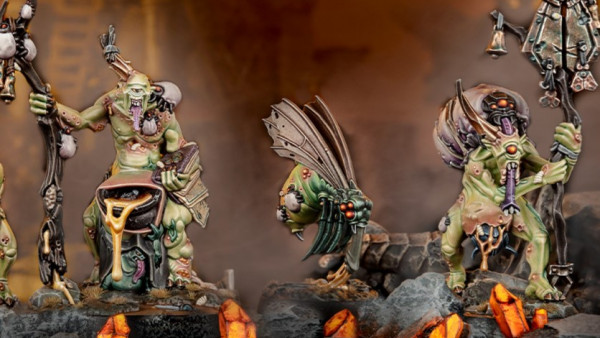
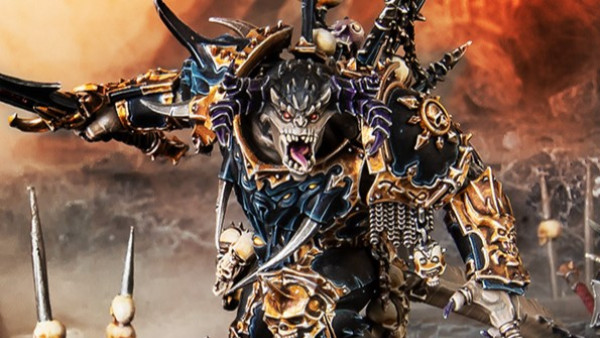
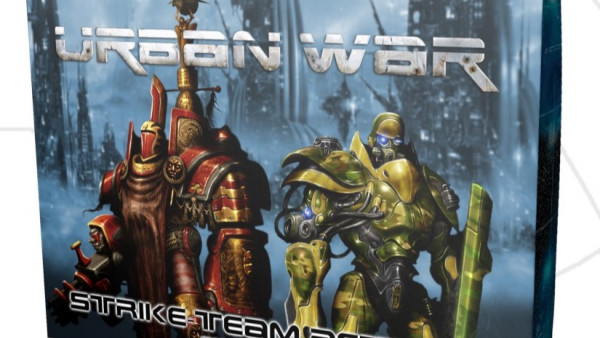
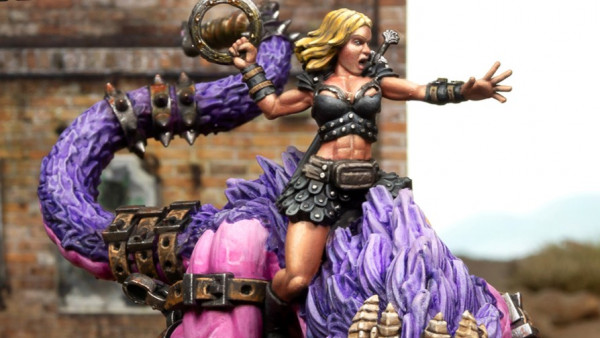
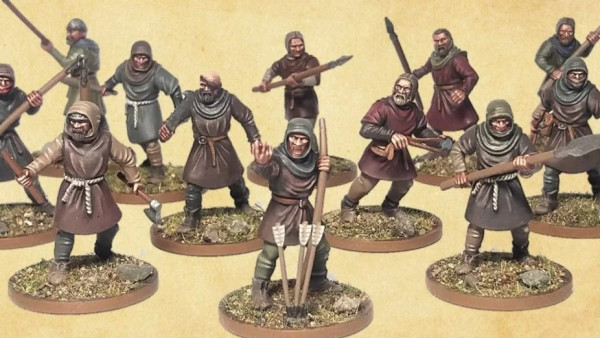
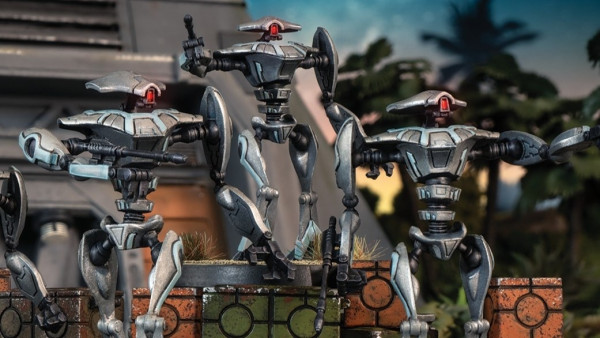
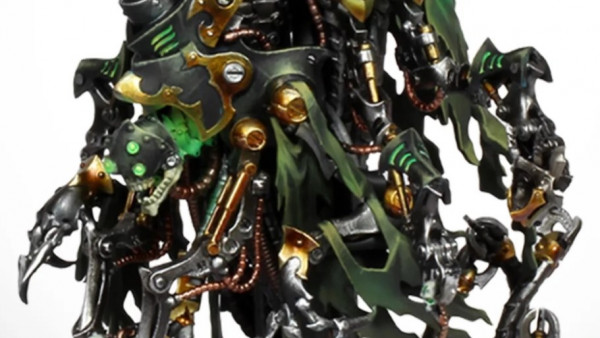
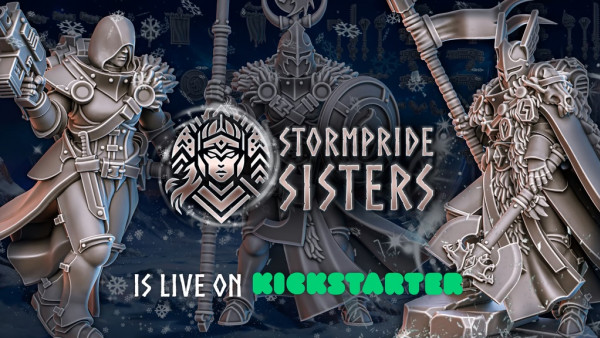


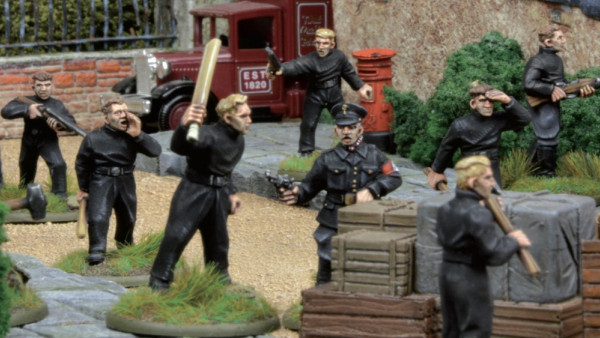
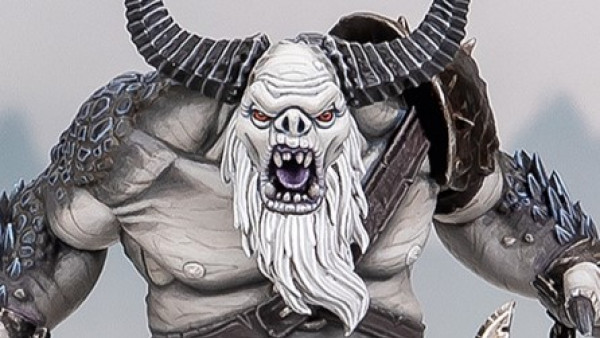
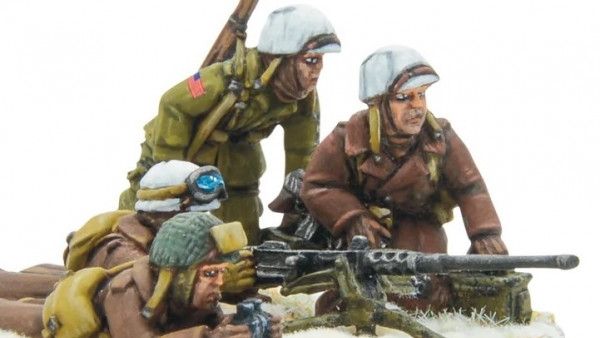

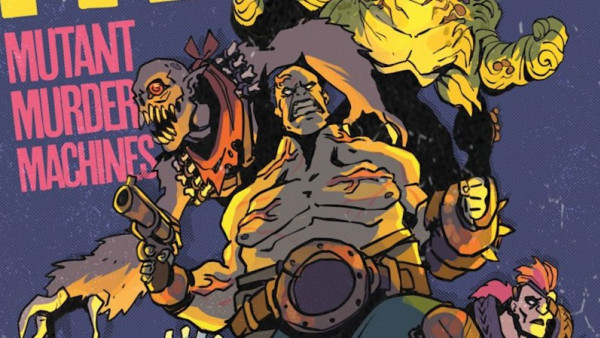
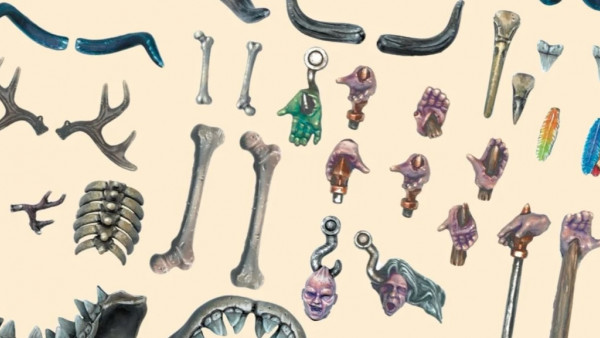
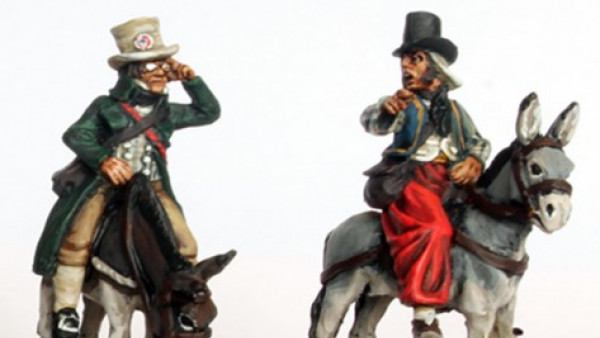
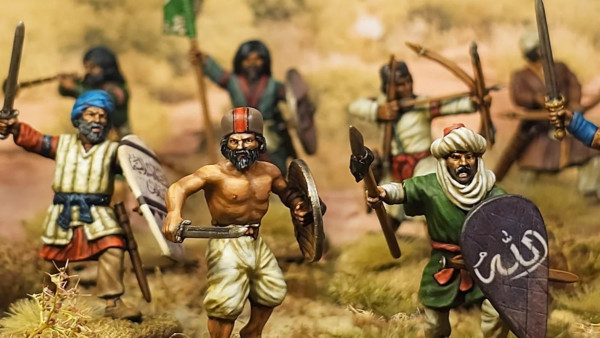


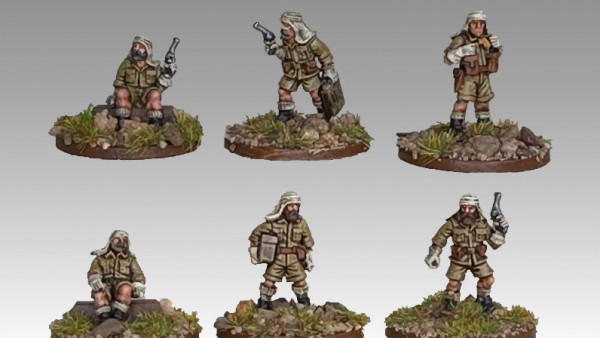

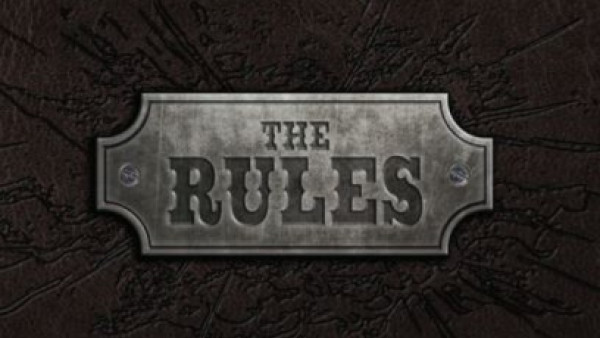
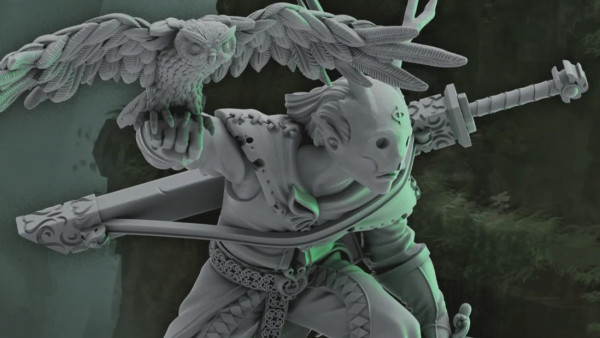
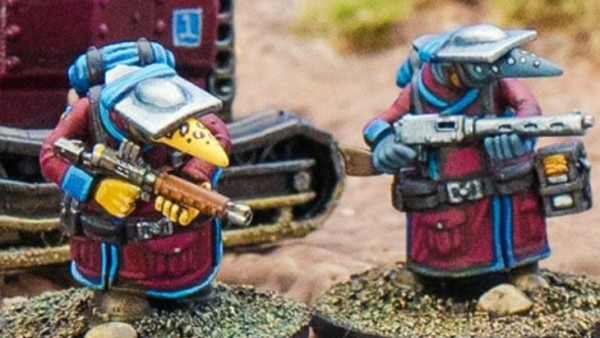
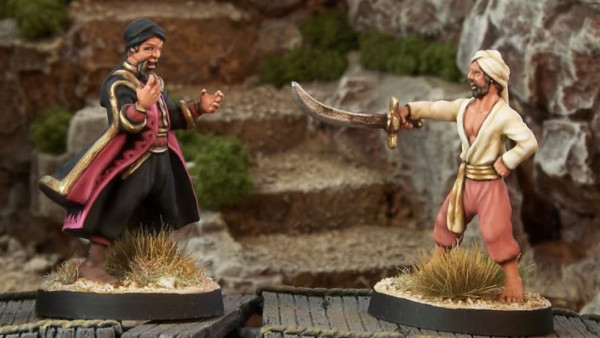
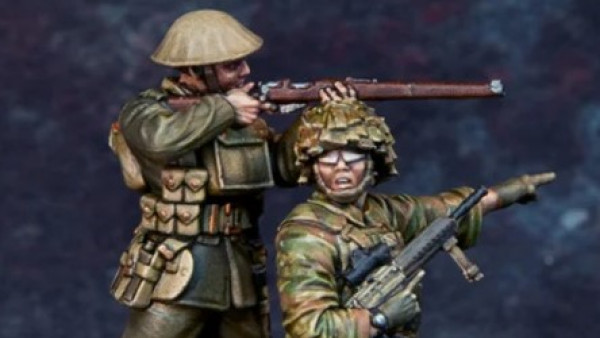


This is a brilliant article! I’m engaging on an early attempt to GM myself for Iron Kingdoms. So far I’ve only done the quick start story, even with their own characters rather than the pre-gen ones, it was a completely scripted story. I’m now starting to develop where that can go. So far I’ve got a follow up scene, but going to keep it to short sessions like TV show episodes, before I get to a place where I can build into a more coherent storyline.
Glad you’ve found the piece of use @lorddraconiroth 🙂
I think that’s a great way to get started. I always use pre-generated stories and sometimes characters when I get into a new system.
Keeping the scenes compact like a TV show helps to fit things into a session that might last four or five hours and means you can gauge reaction to what your players like from instance to instance.
Best of luck 😀
“let the players influence some of the background”
Let them influence most of it, or even all of it. Give some broad parameters at char gen, then let them create characters with motivations, relationships, backgrounds, and so on. From there the campaign just writes itself and every player by default becomes involved in it because they’ve defined a part of it that their character has to interact with.
That certainly works for some groups but not all. I would imagine a first time group might find it easier to be weaned onto the idea as time goes but yes – in an experienced group you could certainly do that 🙂
Couldn’t disagree more. In fact, new groups should have less problems than experienced groups who haven’t tried it before as they don’t need to unlearn their playstyle. In fact, pick up one of a multitude of games which build-in this style of play and start with that. It’ll quickly become second nature. Here’s one for free – http://www.drivethrurpg.com/product/118877/ERA-Epic-Storytelling-Game
Double use of ‘In fact’ fail 🙁 lol
Surely it’d depend on the people playing and everyone will be different? I’d think that some (not all) first timers will be as brennon says as they’ll be unsure of what to do and giving them a clear story will help get them focused on what to do or even allow them to focus on getting the rules down without having to worry too much about creating the story themselves. It’s the difference between, say, saying “You enter the room and see a painting” and “You enter a room and see a painting of the final battle of the Dwarf-Elf… Read more »
The creating of the story is a natural outflowing of creating the character, rather than an imposition on the players. Unless the player has never read a book or seen a film or TV show, no amount of inexperience hinders this. Nor is it anything to do with learning the rules as the rules are an afterthought to creating the character. I am an experienced roleplayer, albeit a lapsed one these days, and I’ve roleplayed in all different styles and with all different levels of experience. Only people who think of rp in this one particular trad way think there’s… Read more »
And to give an example of what it’s actually the difference between, it’s the difference between statting up Luke Skywalker and concepting Luke Skywalker. The former is the trad way, you choose your character class (Level 0 Jedi) and stat up from there. The says who Luke Skywalker is and where he fits in the setting. It says his father is an evil Jedi and his sister is a princess but he’s been brought up on a farm not knowing any of this. Throw in Obi Wan Kenobi and then figure out how this fits in the with the roguish… Read more »
@redban: actually I think that’s what brennon meant by letting them influence some of the background. The GM comes up with the concept of the Evil Empire having taken over the Galaxy, that there is a rebellion going on and that at the time the campaign starts the rebellion has just captured the Death Star plans and that Princess Leia is delivering them to Obi-Wan so he can get them to the Rebellion High Command. The players step in and say Player A: “Okay I’m playing Luke Skywalker, the son of a Jedi who fought and died in the Great… Read more »
It would be more like the GM saying “the setting is an epic battle between good and evil in space” and the players going – “I’m the son of one of the last surviving members of an order of mystical knights. My father turned evil and is a high ranking member of the empire that rules the galaxy. I was brought up on a farm and don’t know who my father is. I have the potential to be a great mystical knight.” “I’m one of the last surviving members of that order of mystical knights. I’m hiding out from the… Read more »
That should be the GM’s and the players’ job is to knit it together.
Some groups simply can’t or won’t participate in the world building. I’ve found a lot of newer players (more recent as opposed to inexperienced) expect to be spoon fed a story and they get upset if not presented with clear direction. I think they want a computer RPG experience compete with quest giver NPCs and black and white choices.
I’m not an experienced GM, but I think it’s worth adding a caveat to: “One of these pitfalls falls on the lap of the GM/DM/Storyteller. You could sit there crafting a huge and incredibly in-depth world but your players are probably not going to see 80% of it. It’s great for creativity but you could be spending a lot of time crafting this world for no reason whatsoever.” It’s only no reason whatsoever if the GM doesn’t like world building/writing fluff/etc. For an aspiring Tolkien, that activity is enjoyable and an end in and of itself. Of course there is… Read more »
Some good advice there, thanks.
One thing I was told about (but haven’t used as I’m yet to DM) was the ‘trapdoor’ device.
This is a way of getting PCs to a pre-prepared location without rail-roading them. Essentially, wherever the PCs go, be it the butchers or the bakers or even a completely different city, they will find a ‘trapdoor’ (or any portal) which leads them to the dungeon/cave/cellar/attic/other dimension (you get the idea) which you have prepared and where all the action is.
Surely that’s still railroading as no matter what they do, the players are being drawn back to having to do that dungeon? Sure they’re not being forced to run through the dungeon (unless you have the portal/trapdoor/whatever slam shut on them once through it), but constantly having something that leads back to that one place would give the message ‘you must do this and can’t get out of doing it’. That could work within a dungeon with them constantly being brought back to a particular room with the puzzle being finding out how to break the loop, but I’m not… Read more »
It’s just a device to ensure that you are prepared. Technically it is rail-roading, yes, but they won’t know that. As far as the party knows they walk through a normal door (for example) and enter the room which has always been there, and always will be. It just doesn’t matter where that door is. You aren’t forcing them to go anywhere and you’re not constantly taking them back to the same place. Maybe my description wasn’t very good. If you had an NPC that you wanted the party to meet you can place him/her/it anywhere (almost), as an NPC… Read more »
I have been there nking about this and after 35 years of rpg’s and it kind of books down to 1. Never kill a character through a trap or pit etc. Injure them badly yes but killing characters in this way just doesn’t encourage the plot along and heroes should die such an ignominious death 2. Don’t worry about the small stuff like calculating food consumption, how long torches burn for etc. Just slows everything down. 3. In our group the characters never stole off or killed each other. In Real life the character would be told to piss off,… Read more »
Ack where is the edit button when you need it
Some I advice I would give about game mastering is: clearly and concisely state what the game is going to be about.in a sort of ‘elevator pitch.’ That is a description that is no longer than a minute or so. Lay out the genre, setting, and what kind of adventures the players’ character will likely do. Then, at least initially, stick with it. Don’t bait and switch. If the players signed up for a superhero game in a Judge Dread-like mega city, don’t give then a couple adventures there before whisking them to a generic fantasy realm (true story). You… Read more »
Great article! 😀 Having run White Wolf RPGs for 20 years . . . RAILROADING: Players are going to be “railroaded” no matter what, depending on your definition of the term. The trick here is the illusion of a true open-world “sandbox” environment. It’s like when you see a movie, you KNOW it’s not real, but if the movie is well-done, you can suspend your disbelief. If players can trust you and your “craft” to where they can’t honestly tell “where the seams are”, where they’re being guided along a story and where they’re in complete control, you’re golden. best… Read more »
I once spent weeks designing and drawing intricate maps of a castle complex, mentally envisioning the epic battles which would occur outside and within. As the party approached I prepared to reveal to them my lovingly crafted work… they then stated that they would go around it… MOTHER****ERS!!!!!
Lol. I’ve had that happen. The best bit though is you can always re-purpose ignored stuff like this and use it elsewhere. 🙂
In my opinion this was the main fault with Wil Wheatons Titans Grave. It was pretty much Wil dictating “You WILL go where I tell you and you WILL do what I say.”
Great article! And some really good comments here too. I agree very much with sharing the storytelling duties with the players, and that you can help and encourage them to take part in this by ensuring that at character creation they have some good plot hooks woven in. Ideally each character should have goals and motivations that will allow the game to run on autopilot without you doing anything. You then add your own story on top of this and – bang – it’s all good. One bit of advice I have to add to this, when you’re trying to… Read more »
“Who has time for counting every penny!”
Someone playing Accountants & Actuaries?
;p
I never played AD&D but the LGS had some product on the shelves and the artwork on boxes and books always had my imagination flowing, planting stories and ideas/settings for the other fantasy rpg we played at the time.
Great article. 🙂
Matt Mercer did a tips episode when Critical Roll had a week off. Well worth a watch.
https://www.youtube.com/watch?v=P8EcS0WYbuc
It is great – watched it myself and now all of Critical Role haha – LOVE that series 😀
I found playing with other GMs and other groups of players, especially single session games at conventions really helps improve your GM skills. Seeing both good and bad GM styles, and practices can show you what to do and what to avoid doing in your own games. I think a good GM needs to be willing to fudge die rolls aka cheat if it will improve th game play. However you must NEVER let the players know you are doing it. This mainly involves avoiding the poor souls who get killed in the first encounter or trap. I mainly do… Read more »
Very good article! Well done!
Would you recommend some begginer friendly fantasy RPGs? Some of my friends and I plan to dwell into pen and paper RPGs. Personaly I played DnD 3rd and Dark heresy once as a PC, so I am a novice in this topic 🙂
Great article @brennon a bit of back story/fluff brings the game/characters to life turns them from fodder to people you want to save I think.
Lots of great posts on this excellent article. So I will keep my post shorter.
Good Game Masters are natural story tellers. What I learned to develop as a DM is information management. There is player knowledge, PC knowledge, PC secrets and DM secrets. Keeping an intensity with what is both known and unknown, and what players and their PC’s do not know that they do not know, etc. Makes the adventure flow and keeps the interest and excitement. A good bit of information can be worth a lot of gold.
Early in thread some folks mention writing it like a tv episode. That’s a really good plan, and to take it a step further TV shows often have an A story, B Story, and sometimes a C Story. For your RPG the A story is the big bad, Good vs Evil plot line that is the crux of your adventure. It could be (in fantasy) an evil cave that is the source of in a small village (for fantasy RPG) or the Galactic Empire has a local outpost harassing a backwater planets population (for Star Wars). The characters need to… Read more »
Always great to see articles like this pop up. @brennon I think you have the best strong points a GM could worry about in a role play game.
I am currently about to run my own Black Crusade game with a group that I have been playing with for about the past 7 years or so, and its always good to brush up on pointers for how to tell a story.
For anyone interested, there’s a great little article in this link to how to be a good player in a rpg. Just some butter to go with the bread. http://lookrobot.co.uk/2013/06/20/11-ways-to-be-a-better-roleplayer/
This is a great article with a lot of really good pointers.
Having been a DM/GM/Storyteller for over 20 years I’m always interested in other peoples’ points of view.
I’ve even written a few posts on this myself over on my website – I’d love it if you guys took a look:
http://garblaggames.co.uk/?cat=14
Great article and I agree with most said. Although I’ve never wasted significant time on too much planning. Encounters/events can always be repurposed with a bit of tweaking. In fact I found it handy to have a small collection of such things which can be used when the players surprise me and take me off the course I thought the session would take. The trick is toake the encounters a bit more modular. Cool concepts can always be used even if you have to tweak the location/NPC involved. The location is the hong that ties it closest to the current… Read more »
Great article and comments, thanks everyone!